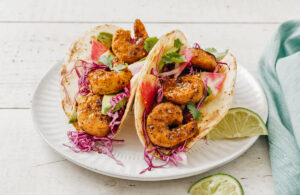
Article
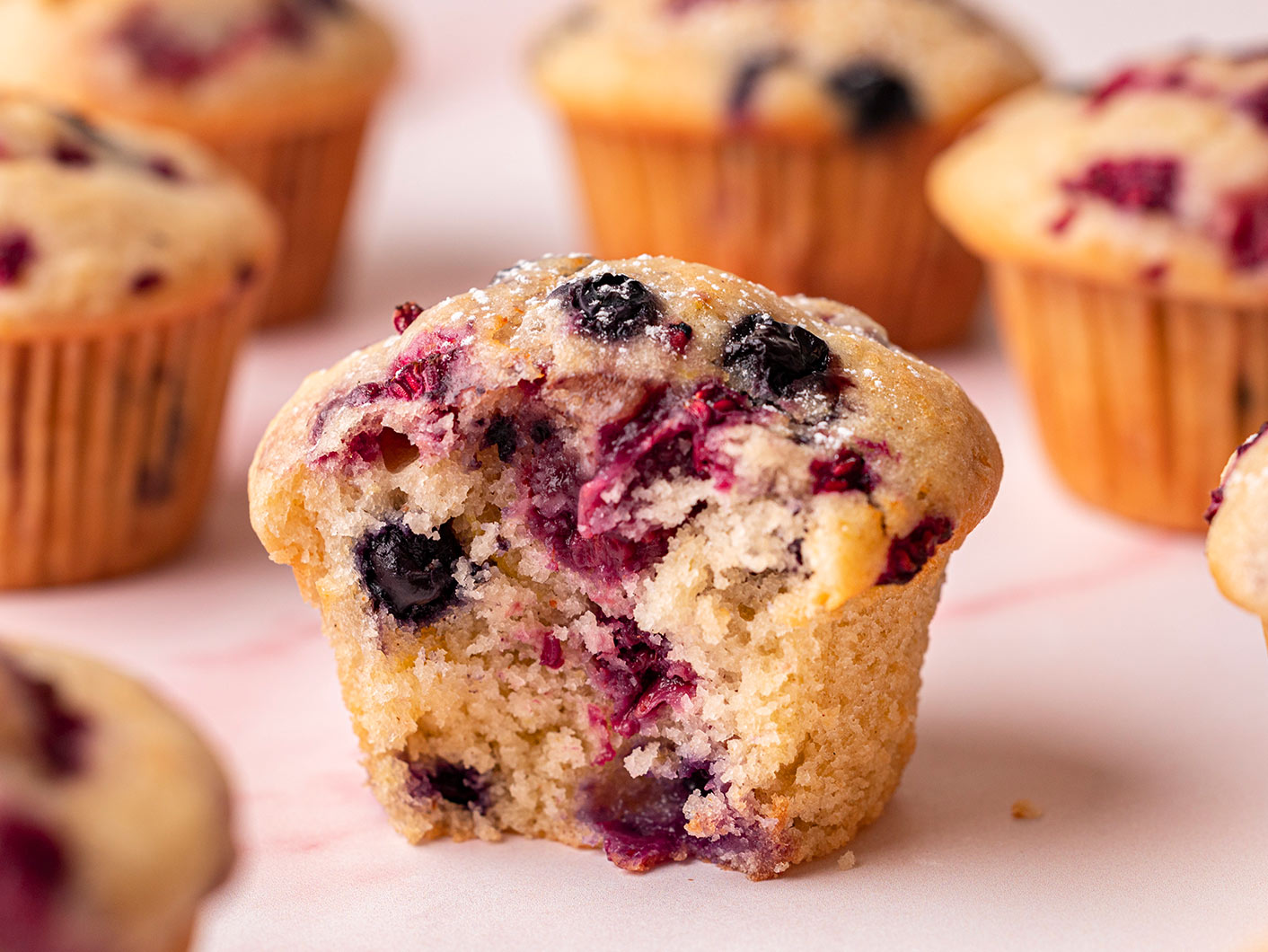

From aquafaba to chia seeds to powdered egg replacer… When you’ve got these cheap swaps on hand, egg-free baking is a piece of cake – literally!
Whether you’re looking to cut back on eggs for health reasons, considering going fully plant-based, or simply baking a treat for a vegan friend, there are plenty of fantastic egg replacements that you can either buy in-store, or make yourself at home.
Which option to choose really depends on what sort of recipe you’re making, and whether it requires an egg-like ingredient that acts as a binding agent, a leavening agent, or both.
Check out our beginner’s guide below – you’re bound to find a cracking egg alternative that suits your needs.
¼ cup unsweetened applesauce = 1 whole egg
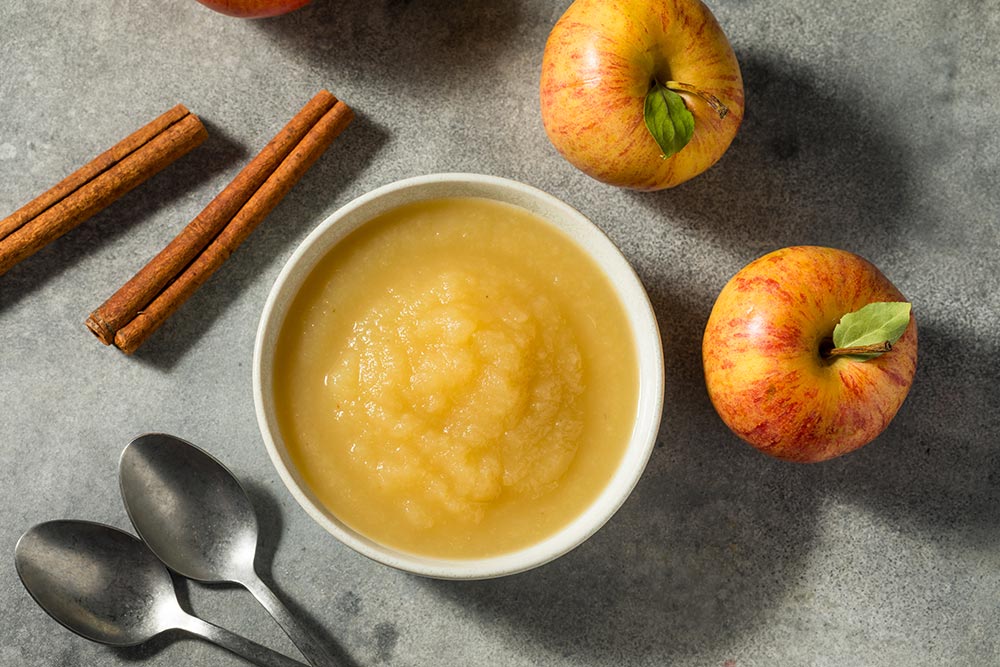
Who knew apple purée could be such a great stand-in for eggs? It’s a little denser than some of the other alternatives on this list, making it best suited for use in baked goods like pancakes, breads, and muffins. To balance out the density and make sure the final result is still nice and springy, try adding an extra ½ teaspoon baking powder to the recipe.
3 tbsp of aquafaba = 1 whole egg
2 tbsp of aquafaba = 1 egg white
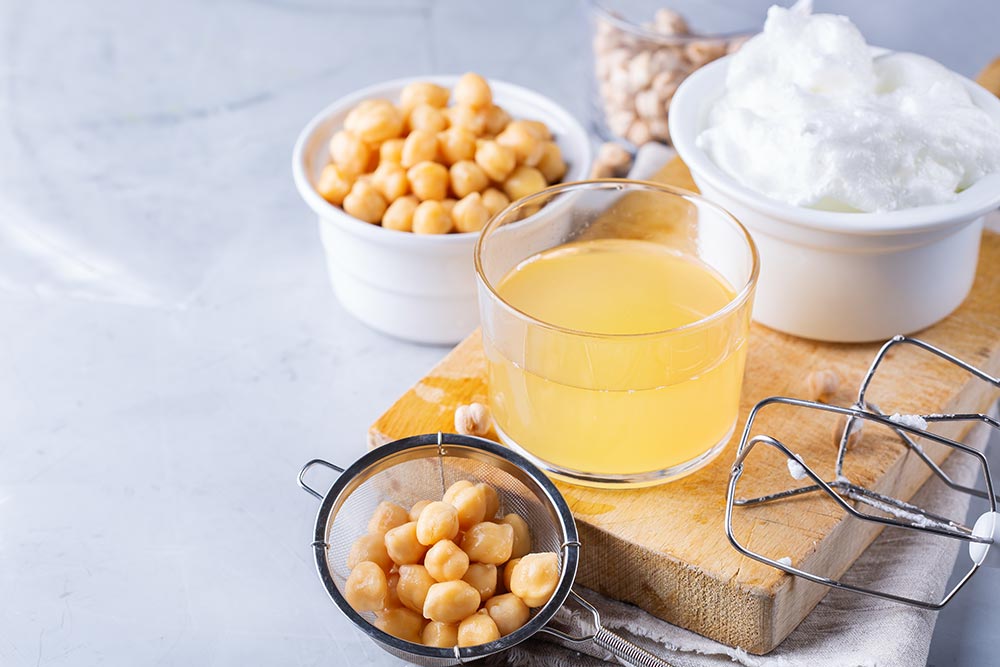
Aquafaba is the miraculous golden liquid hiding in your cans of chickpeas, and it whips up into voluminous peaks just like egg whites! There are some incredible aquafaba-based recipes for fluffy treats like meringues, macarons, and mousse out there, but it can also be used to bind and add lightness to other baked goods like cakes, brownies, and muffins.
Check out our beginner’s guide to aquafaba for tips on how to get the best results.
1 tbsp vinegar + 1 tsp baking soda = 1 whole egg
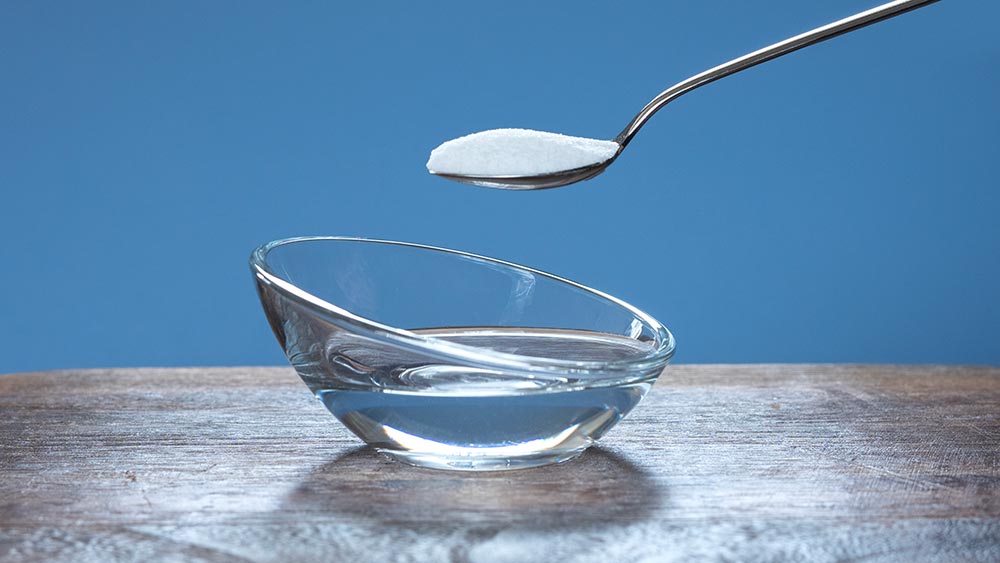
You can use apple cider vinegar or regular white vinegar for this concoction – mix either one with baking soda, and watch the chemistry unfold. The acidity of the vinegar reacts with the alkaline baking soda to create frothy bubbles, which makes batters rise beautifully.
Try this baking soda and vinegar combo in cakes, cupcakes, and muffins that you want to be perfectly soft and tender. Just keep in mind that the vinegar does add a touch more liquid to the recipe, so you may want to adjust the amounts of your dry ingredients.
¼ cup mashed banana (about ½ banana) = 1 whole egg
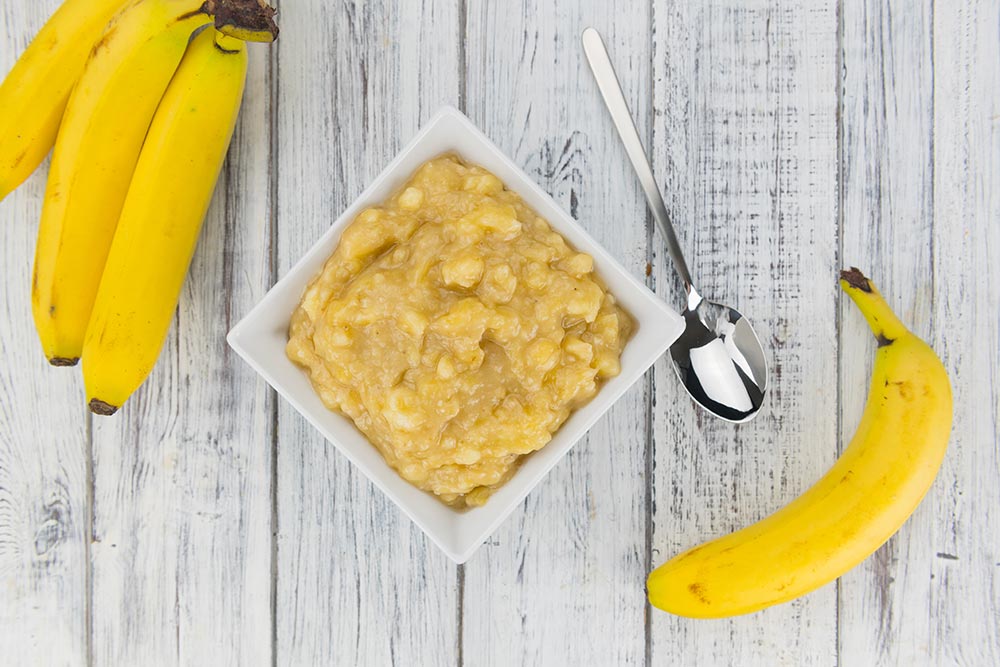
Best used in soft muffins, breads, and pancakes, ripe bananas make an excellent alternative to eggs for adding moisture and binding baked goods together. The only thing to remember is that they don’t add any leavening properties, so you’ll need to add about ½ teaspoon extra baking powder to make sure your treats rise properly.
This banana trick even works in super airy cakes like lamingtons!
1 tbsp chia seeds + 3 tbsp water = 1 whole egg
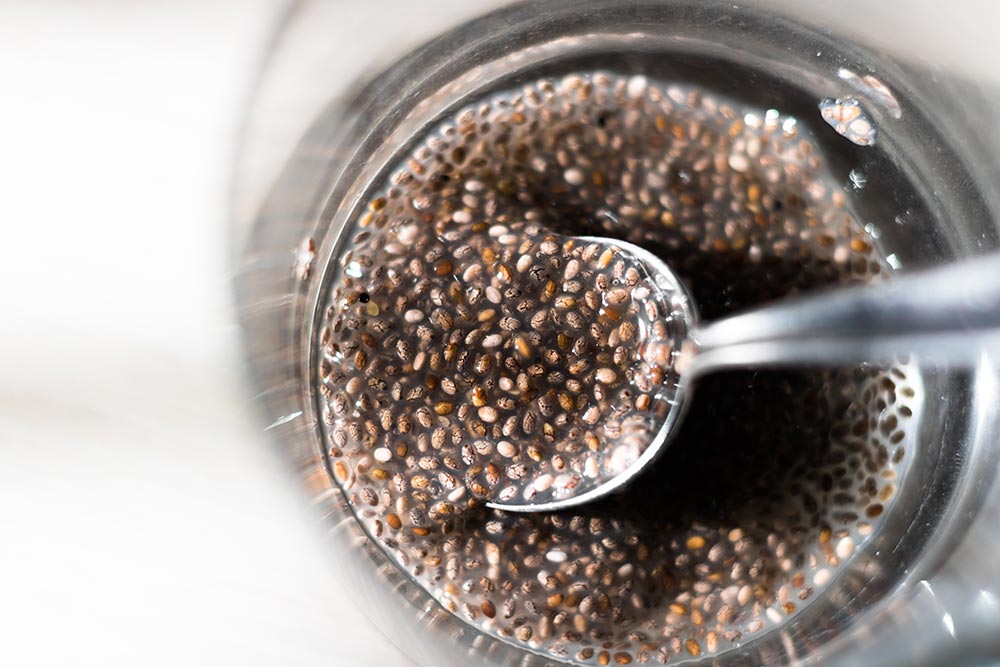
If you follow the recipe above and leave the mixture to sit for 5 minutes, you’ll create a gel-like blob known in the vegan baking world as a ‘chia egg’. It makes a brilliant binding agent for doughs and batters that need to stick together, but don’t necessarily need to rise too much (like waffles, pancakes, and decadently chewy cookies).
Speckles of chia seeds may sometimes be visible in the final product, and may add an ever-so-subtle crunchiness (like poppy seeds, if anything!), but flavour-wise, chia seeds fly completely under the radar.
3 tbsp chickpea flour + 3 tbsp water = 1 whole egg
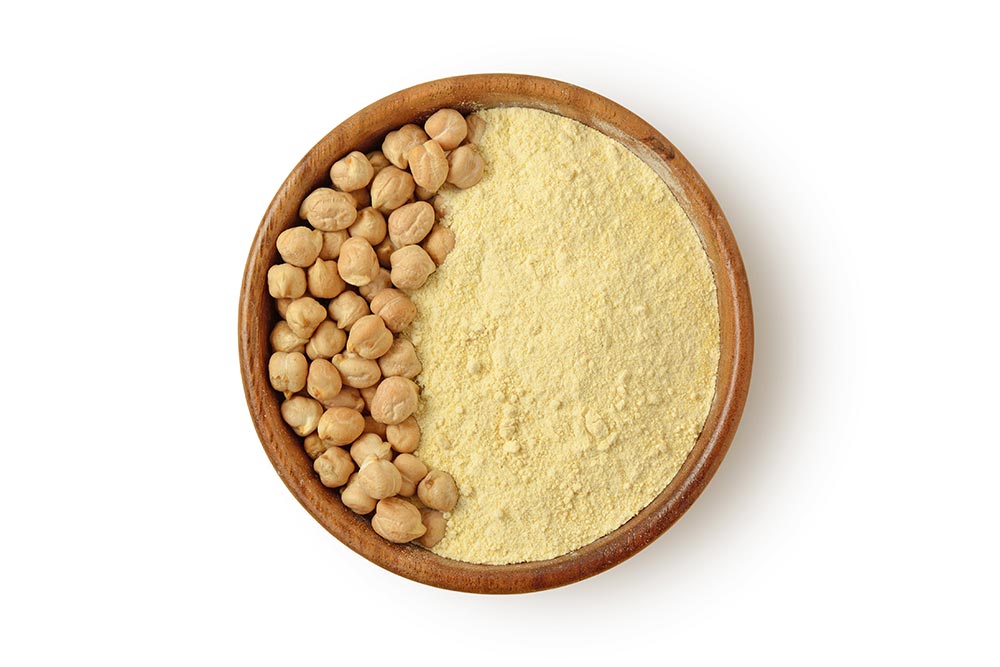
Chickpea flour and water are a dynamic duo that both binds and leavens! When mixed together, they create a surprisingly thick and creamy egg replacement that works well in most recipes for cookies, scones, muffins, and breads – and also happens to be packed with protein.
You can find chickpea flour in the baking aisle of your local supermarket, at health stores, or online.
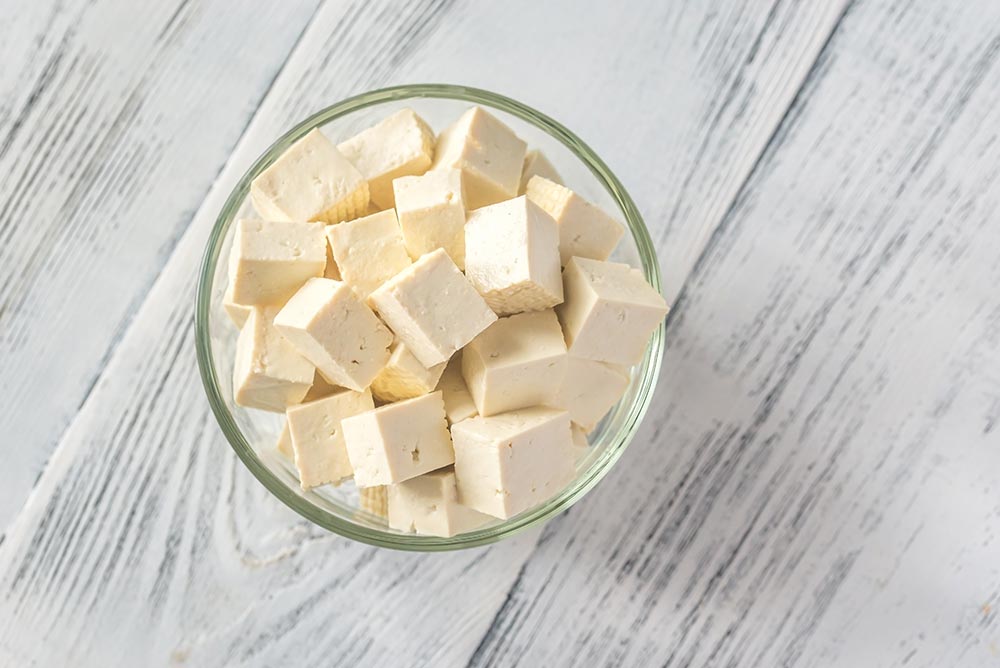
If you’re craving the soft yet satisfying bite of a breakfast scramble, quiche, eggs benny, or egg salad sandwich, firm tofu is the uncanny substitute you’re looking for.
Crumbling tofu creates the perfect texture for imitating eggs, and it’s a complete blank slate flavour-wise – meaning it will soak up whatever seasonings you add to it.
Black salt, also called kala namak, is your go-to spice for adding that classic ‘eggy’ aroma and flavour. A must-have in your plant-based pantry!
1 tbsp flaxseed meal + 3 tbsp water = 1 whole egg
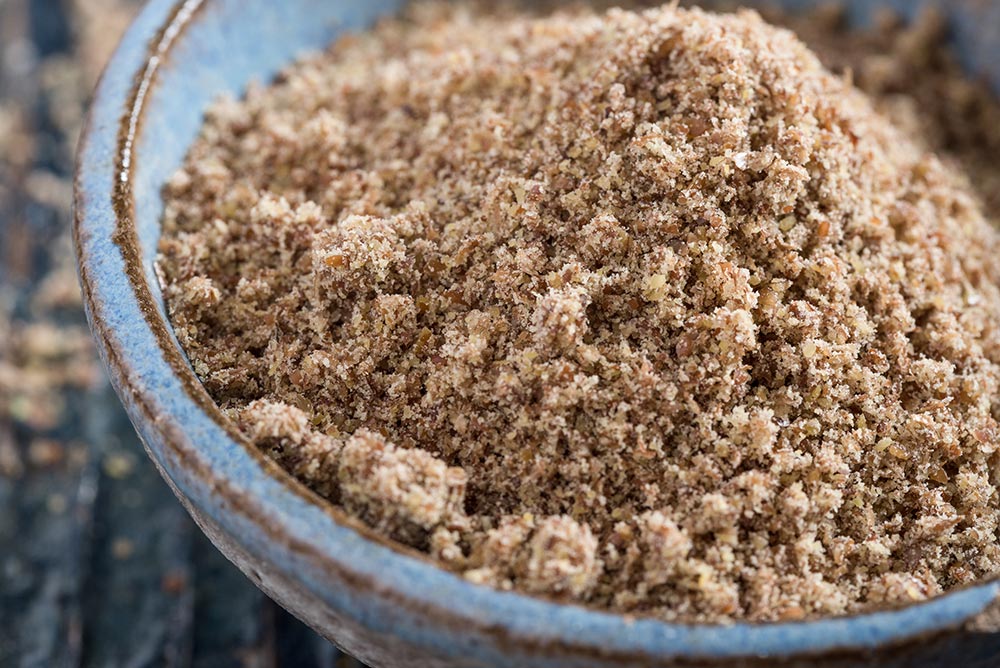
When you mix ground-up flax seeds (labelled in stores as flaxseed meal or flaxmeal) with water and let it sit for 5 minutes, the result is a fantastic binder that has a very similar consistency to egg white.
You can use a ‘flax egg’ in brownies, pancakes, muffins, cookies, and even savoury goods that need a little extra help sticking together – like meatless meatballs, for example.
Another bonus of using flaxseed in your baking and cooking is that it’s full of essential fatty acids, antioxidants, and fibre. Win-win!
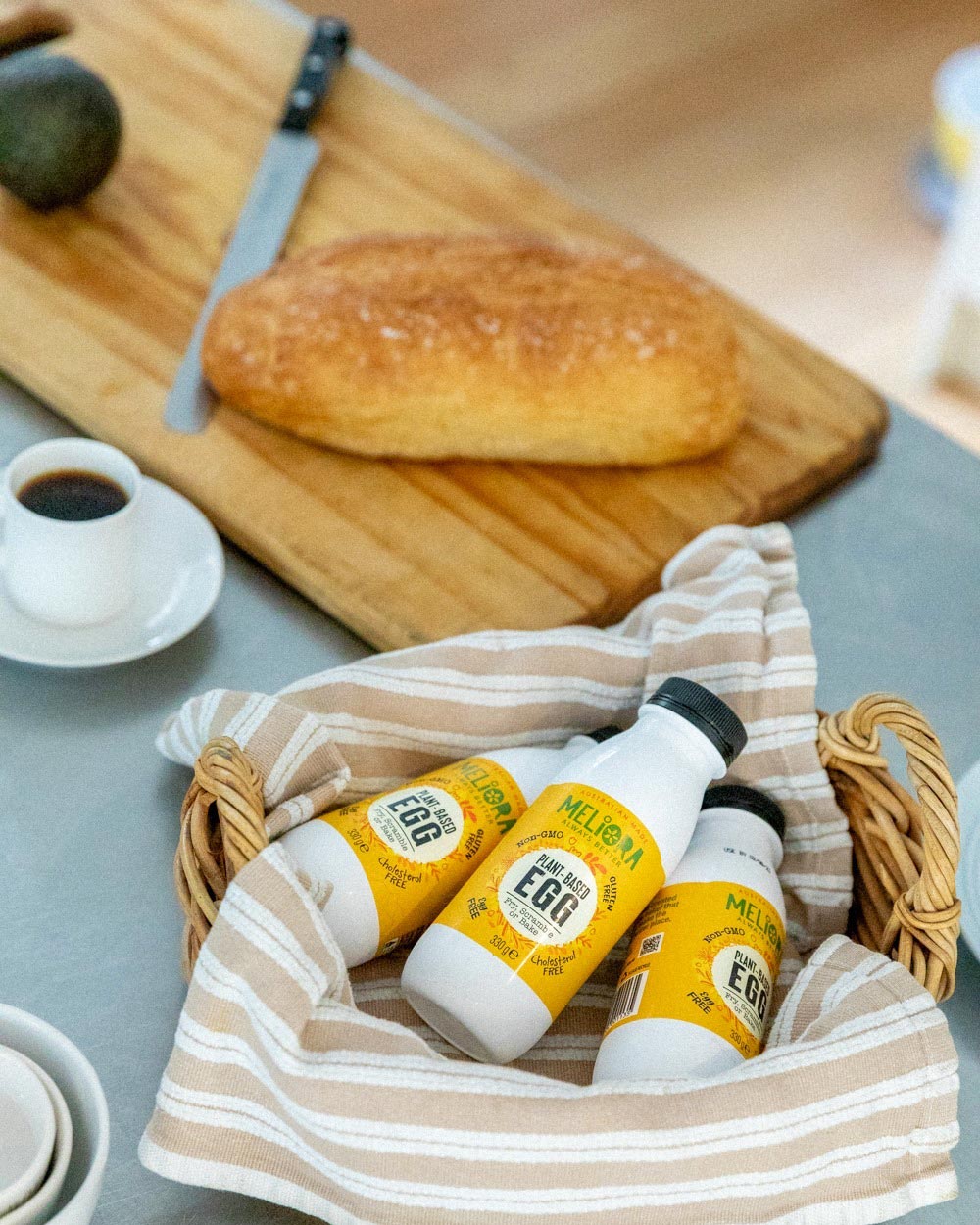
These ‘egg-in-a-bottle’ products are an absolute game-changer for anyone who misses the convenient crack and sizzle of frying an egg. Designed to replicate the texture, taste, and cooking properties of chicken eggs, liquid egg substitutes just have one fundamental difference: They’re 100% made from plants!
Veg-ifying all your old favourite recipes suddenly becomes super easy – everything is possible, from frittatas to scrambles, carbonaras to quiches, and even omelettes.
Keep an eye out for these amazing liquid egg substitutes in supermarkets, health stores, and online:
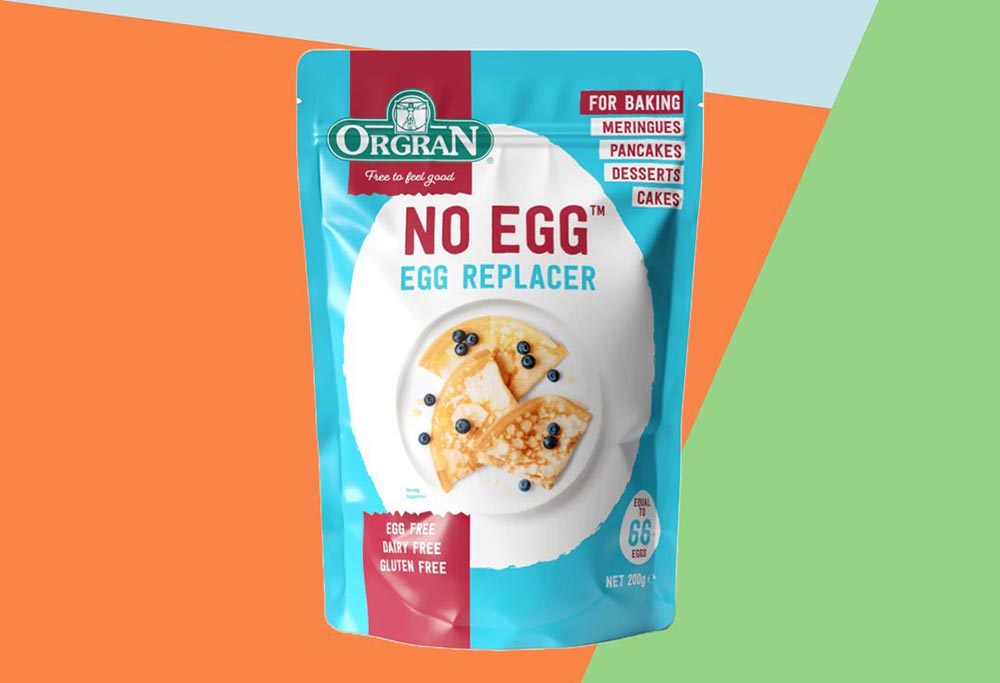
You’ve probably walked past this miraculous little product in the supermarket without even realising. As one of the cheapest, easiest, and most versatile alternatives to eggs, it’s well worth seeking out. You’ll usually find it tucked away in the baking aisle or health section, in a small container or resealable packet.
Egg replacement powder is made from a nifty blend of leavening agents and starches. Just add water according to packet instructions, and you’ve got yourself a perfect egg substitute for cookies, cakes, pancakes, muffins, and some typically egg-based savoury dishes too.
You can find several brands of egg replacement powder in supermarkets these days, and buy others online:
¼ cup of silken tofu = 1 whole egg
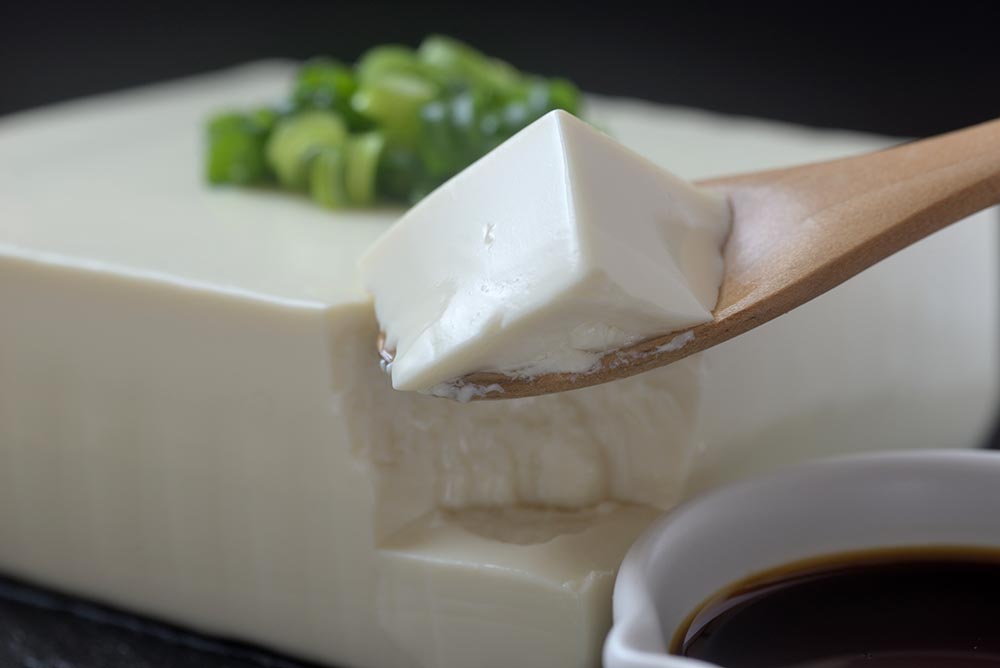
Firm tofu might be a star when it comes to scrambles, but silken tofu has its place in egg-free cooking too. It’s best used in recipes that call for eggs mainly to add moisture and richness, rather than to do any leavening.
This includes dense, creamy desserts like chocolate tarts, pies, raw cheesecakes, custard, and even protein-packed savoury dishes like this potato and leek tart.
Hot tip: Just make sure you always purée the silken tofu to avoid any unwanted white pieces in your end product.
¼ cup vegan yoghurt = 1 whole egg
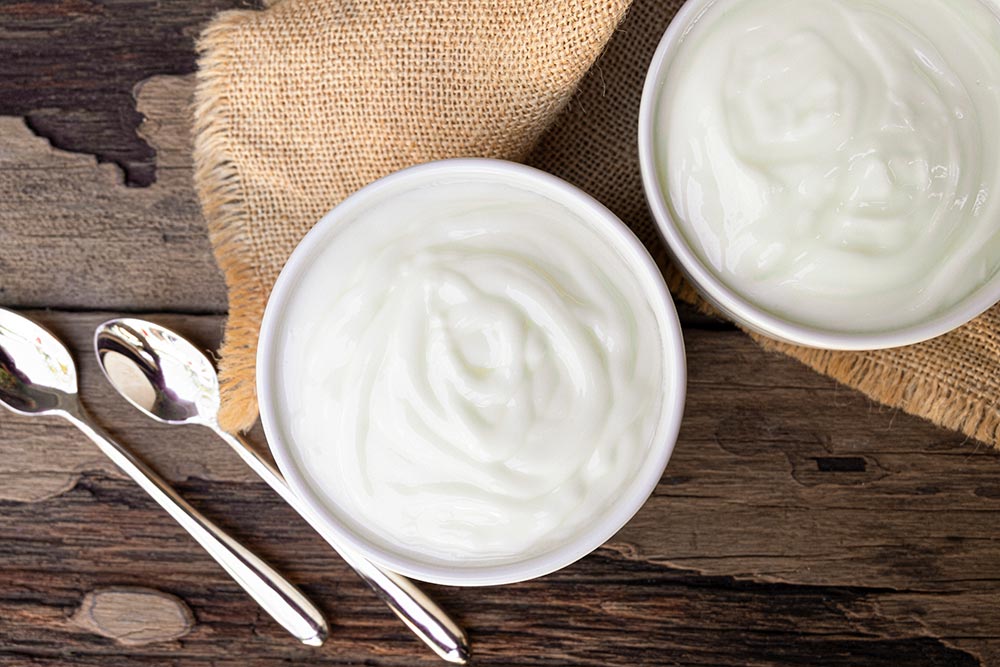
Delicious by itself, and super handy as an egg replacement too. Add a generous dollop of soy or coconut yoghurt to your egg-free muffins, cakes, and pancakes – not only will it help bind the batter together, it’ll also add a subtle buttermilk-style tanginess.
This light yet indulgent carrot cake slice is a great way to put your dairy-free yoghurt to use.
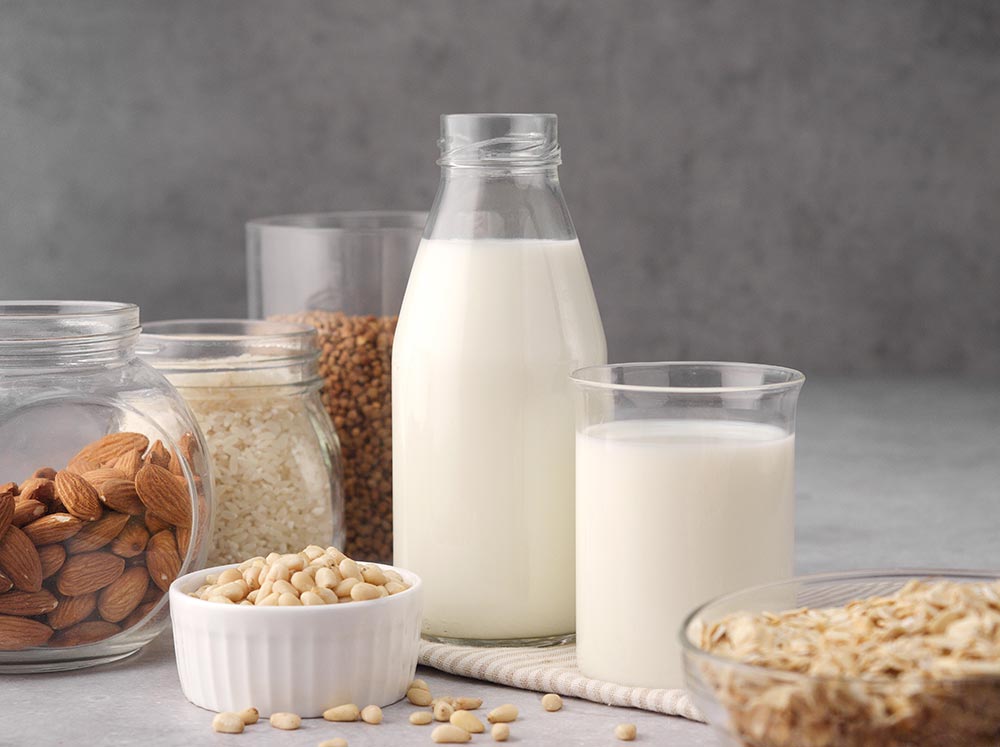
Whenever a pastry or bread recipe calls for an egg-white glaze (also called an egg wash), don’t skip this step! Just use some melted vegan butter or a small amount of soy or oat milk instead. It’ll give the top of your baked goods that lovely golden sheen you’re after.
1 ½ tbsp vegetable oil + 1 ½ tbsp water + 1 tsp baking powder = 1 whole egg
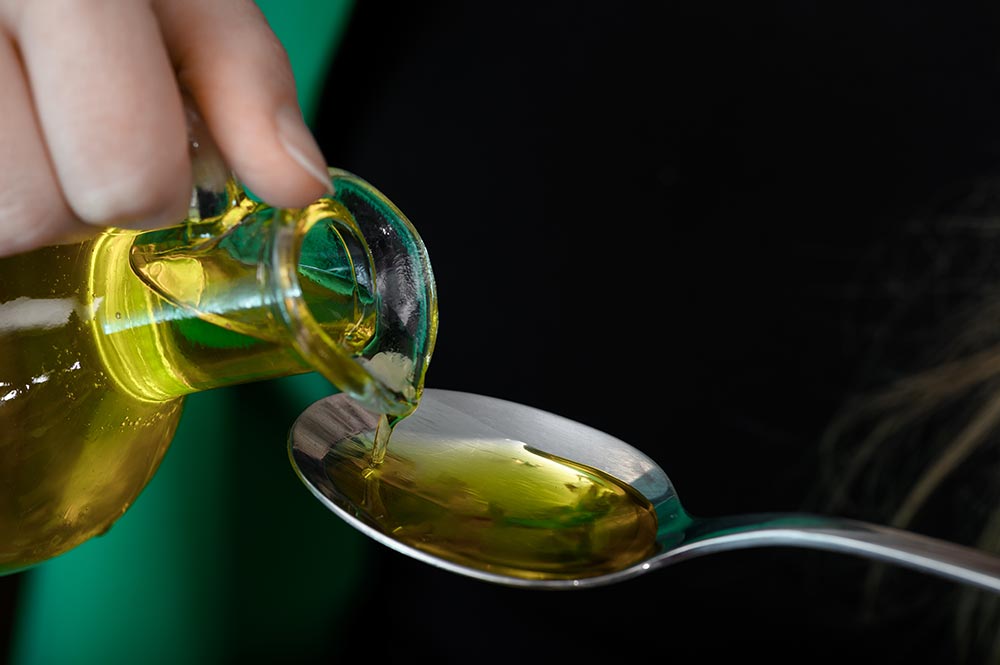
You can even use this very scientific ratio of vegetable oil, water, and baking soda in place of an egg! We’d typically reserve this option for recipes that use eggs primarily as a leavening agent – i.e. a cupcake, cake, or muffin that you expect to be quite fluffy and rise a lot.
With so many incredible egg substitutes to choose from now, going egg-free has never been simpler – or more delicious.
Don’t be afraid to experiment to figure out which of these alternatives work best in your favourite recipes.
Each egg replacement option has its own unique properties and best uses, so if you don’t quite get the results you were hoping for with one of them, try another on for size. (Hey, we’ll take any excuse to keep making ‘test’ batches of sweet treats!)
We’re here to help with tips for veganising recipes, too. Consider us on call for all your plant-based cooking and baking needs – we’ll happily be your long-distance sous-chef! ![]()

Jacqui likes to spend her spare time with her two cats, eating sweet treats and listening to 90s British pop. She enjoys making plant-based goodies inspired by her love of all things David Lynch, and if she’s cooking dinner, you better believe there is gonna be spice!